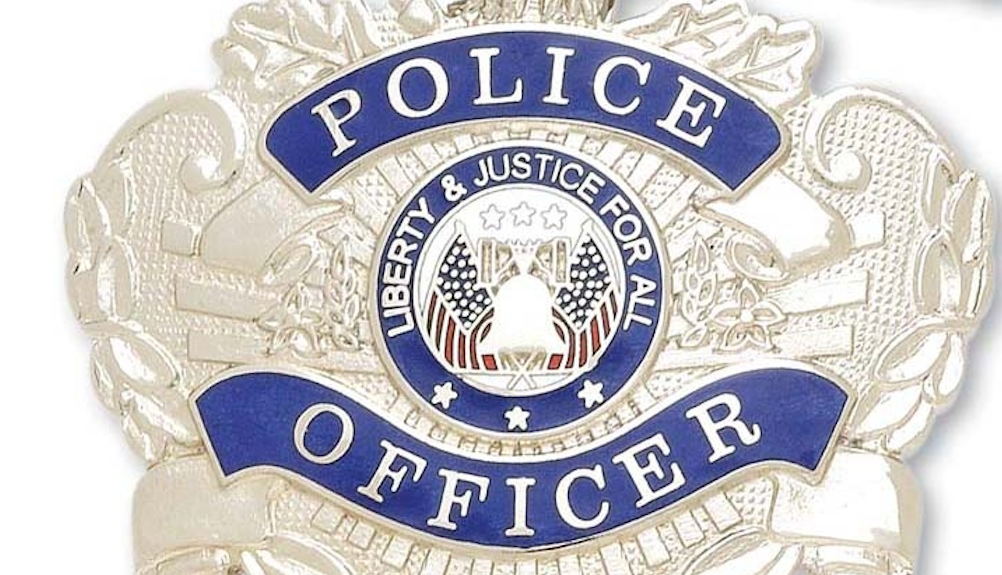For United States Marine Corps veteran Stephen Mader, 25, the difference between the training one receives as a combat-ready leatherneck, versus the one receives as a police officer in rural West Virginia is the difference between him having his old job — his dream job — right now, versus him driving a truck.
“Before you go to Afghanistan, they give you training,” Mader told National Public Radio. “You need to be able to kind of read people. Not everybody over there is a bad guy, but they all dress the same. That’s kind of what the situation was that night.”
The situation was a dangerous. But it was one the Marine vet and rookie cop read correctly, right off the bat. That is, until his backup arrived, until he had to witness it all degenerate into madness and morph into a real life nightmare that — in seconds — erased two things: the life of a young father, and, his livelihood.
***
At 2:51 on the morning of May 6, a 911 call came in to an emergency dispatcher, who relayed the distress to a police officer in Weirton — Stephen Mader.
First year on the job but alone in his squad car that late night into dawn, he answered the emergency, and swiftly headed to the address.
“Had a female stating they needed someone right now. She sounded hysterical. Hung up the phone, will not answer on call back.”
When Mader arrived, he saw a 23-year-old black man, Ronald D. Williams, outside the home with neither of his hands visible.
“And I say, Show me your hands,’ and he’s like, ‘Naw, I can’t do that,'” Mader told NPR. “I said, ‘Show me your f’ing hands.’ And then he brings his hands from behind his back and puts them down to his side. And that’s when I noticed he had a silver pistol in his right hand.”
As this was going on, unbeknownst to the former Marine, Williams’ girlfriend who placed original 911 call was on the line again with the dispatcher, telling authorities that her boyfriend was drunk, the gun had no clip in it, and that the was going to try and bait police into shooting him.
“Aim in on him, and I say, ‘Drop your gun. Drop your gun. And he said, ‘I can’t do that. Just shoot me.’ And I told him, I said, ‘I’m not gonna shoot you, brother — just put down the gun.”
In the Marine Corps, especially in Afghanistan, the rules of engagement were/are very strict. Some might say, much more so than many of the same rules for American civilian cops.
In the USMC, Mader was taught not to fire until “clear hostile intent” was shown. And, he simply didn’t see it in Williams. He saw a troubled man, not a killer.
“For me, it wasn’t enough to kind of take someone’s life because they’re holding a gun that’s not pointed at me.”
Seconds later, however, Mader’s police backup arrives. They’re officers and all they know is that the man on the scene has a gun.
As the reinforcements pulled up to the property, Williams started walking towards them.
“Their weapons are drawn, and they’re screaming at him to drop the gun. At that point he starts waving the gun, back and forth between us.”
One of the officers fired a shot. It struck Williams in the head, killing him almost instantly.
Mader went in to check on the girlfriend and the young child. While he did, the other officers discovered she was right. Williams didn’t have any bullets in the firearm.
“The one officer felt that his life was in danger, along with others’, and he decided to fire at the subject. And I believe he was justified in what he did,” said Mader.
A few days later, however, Mader was fired by his superior: Police Chief Rob Alexander. The reason? For putting his fellow officers in danger.
He says Mader “froze.”
This from NPR:
But what Alexander characterizes as hesitation others may see as experience. Around the country, police chiefs who’ve hired war veterans have commented on their maturity and self-control when facing danger.
Dave Wilson, chief in the Wisconsin town of Shell Lake, an Iraq War veteran himself, said the vets he has hired make for ideal cops.
“If anything else, they have a better understanding of rules of engagement and use of force than others might,” Wilson said. “They’re used to seeing people holding guns, and they take the time to assess the real danger of the situation.”
Researchers are starting to look at this, too. At Washington State University, Stephen James is part of an effort to test law enforcement officers’ reactions in simulators, and one of the factors they’re tracking is whether the officers are veterans. The data haven’t been compiled, yet, but he said other studies of how the brain operates under pressure would suggest that veterans are more “patient.”
“Combat vets who’ve been exposed to extreme violence have a different ‘threat threshold,’ ” James said, “which means that they’re in more control of their physiology, and they’re not allowing this fight-or-flight response to drive them into action.”
But in Weirton, officials said it wasn’t just Mader’s failure to shoot that got him fired. City Manager Travis Blosser said other reasons included “illegal searches in a vehicle, to the use of profanity with citizens and then also contaminating a crime scene of a potential homicide investigation.”
The city manager and police chief would not comment further for this story.
The American Civil Liberties Union (ACLU) is talking to Mader, who’s considering going to court over the matter.
He has a wife and kids.
“If I had maybe 30 more seconds, maybe it would’ve been different. Maybe I could have talked him down and just put him in handcuffs that night.”




































